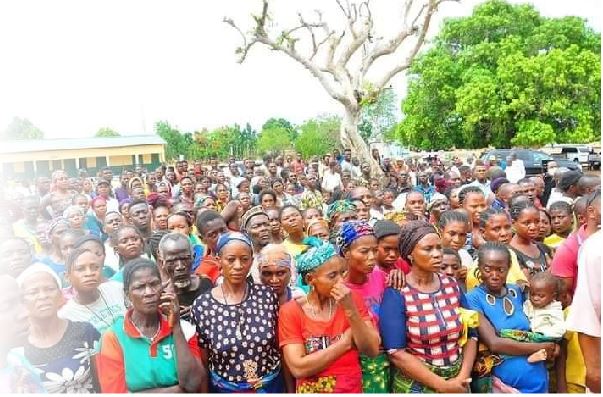
Indigenous Tiv communities in Nasarawa have accused the state government of enabling systematic killings, land grabbing, and ethnic cleansing in their ancestral regions, warning of an emerging humanitarian crisis.
In a statement issued in Abuja on Thursday, Terkaa Jerry Aondo, a Senior Advocate of Nigeria (SAN) and spokesperson for the affected Tiv communities, alleged that Governor Abdullahi Sule has flouted a subsisting court order barring the state from tampering with Tiv settlements, and has instead presided over aggressive agricultural projects on disputed lands.
According to Aondo, dozens of Tiv villages across Doma, Obi, Awe, Keana, and parts of Lafia LGAs, including Akaha, Utsuwa, Usula, Udugh, Chabo, Wachi, and Ayarkeke, have been under siege in recent weeks, with villagers violently displaced and forced into Internally Displaced Persons (IDP) camps in Agyaragu Town and Abaagu village.
“This is not just displacement, it’s ethnic cleansing disguised as development,” Aondo said.
He cited SUIT NO. NSD/LF/44/2025, which granted a preservative order restraining the Nasarawa government from further encroachment on Tiv lands.
He, however, said on July 1, Governor Sule reportedly launched a rice farming initiative in Ayarkeke and Jangwa, areas currently under legal dispute.
His words: “Rather than respect the courts, the governor has chosen provocation. This is a flagrant abuse of judicial authority, and it endangers the lives of thousands.”
He said the situation worsened on July 2, when a Tiv farmer, Mr. Kyobo Ndar, was reportedly killed and dismembered by suspected herdsmen in Keberi-Biu, Doma LGA.
The Tiv communities further accused the government of attempting to reclassify them as “settlers” in Nasarawa.
They demanded the immediate compliance with the court order halting all activity on the contested land, deployment of federal security forces to prevent further attacks and arrest and prosecution of those inciting ethnic hatred
They also called for an independent investigation into the killings and displacement and intervention by President Bola Tinubu, the National Security Adviser, DSS, National Human Rights Commission, and international human rights organisations.
“The silence of authorities in the face of these atrocities is not just shameful, it’s dangerous.
“This is a humanitarian and legal emergency. The rule of law must be upheld, and justice must be served,” Aondo said.
The communities urged the Nigerian Bar Association (NBA) and other legal institutions to take up the matter, warning that disobedience to court orders by state actors threatens the country’s constitutional foundations.
